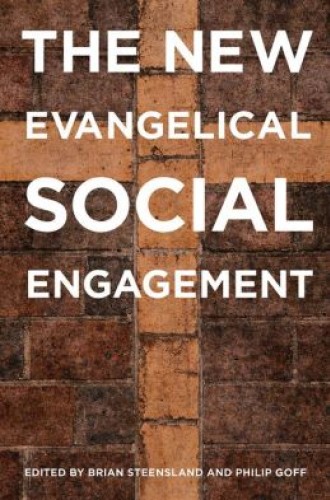The New Evangelical Social Engagement, edited by Brian Steensland and Philip Goff
Recently an academic friend whose views and worship practices meet all the usual criteria of evangelical told me he no longer owns the label. When I asked why, he answered simply, “When I tell people I am an evangelical, they automatically assume I want America to bomb Guatemala.”
This valuable anthology addresses a topic that usually flies under the media’s radar: “new” evangelicals’ progressive social engagement in the past quarter century. Other works, such as David R. Swartz’s Moral Minority: The Evangelical Left in an Age of Conservatism, Brantley W. Gasaway’s Progressive Evangelicals and the Pursuit of Social Justice, and Heather Curtis’s forthcoming Holy Humanitarians: American Evangelicals and Global Aid, tread some of this ground. The New Evangelical Social Engagement, edited by distinguished scholars of American religion at Indiana University/Purdue University, amplifies these works with deeply researched historical and sociological case studies.
The chapters document the impressive range of new evangelicals’ efforts. Their endeavors include sustained attention to war, disease, racism, patriarchy, homelessness, hunger, corruption, poverty, illiteracy, environment, urban renewal, economic development, human trafficking, HIV/





